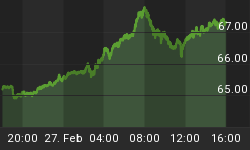Fintech may be storing all its cash in conventional banks, but make no mistake, companies like Square, PayPal and others are revolutionizing money, and there’s no stopping it.
“Open” banking, new loan programs, equity crowdfunding, chatbots, an entire new sub-industry called “Banking as a Service (BaaS)” and wildly disruptive blockchain architecture are experiencing advancements at breakneck speed.
It all leads to what is, in one way or another, the end of our traditional system of swapping money for goods. And while it’s all high-tech and digitized, it’s also in many ways a blast from our bartering past.
It will likely mean a future in which we swap a “basket of assets”, according to Forbes, for goods and services. Going forward, we’ll be using these “assets”, whose ownership and value will be proven by the blockchain, which can record everything and get rid of intermediaries.
In this fast-moving space, there’s another disruptor emerging that could completely upend the credit card segment: Buy-Now-Pay-Later (BNPL) companies, such as Afterpay, which was acquired by fintech darling Square for $29 billion this summer.
BNPL is a direct threat to traditional revolving credit because it replaces that with a fixed-term loan that can frequently be obtained for 0% interest, and no compound interest. In these setups, both the loan and the credit risk is taken by the BNPL company. Many online retailers have already adopted one or more of these BNPL offerings, making online shopping even easier for consumers.
It’s already a crowded space, and this holiday shopping season could be one of the best barometers for measuring the threat to credit card companies and processes in the medium-term.
Payments company Stripe, which is discussing a possible IPO for next year, has struck a strategic partnership agreement with Swedish Klarna that will give Stripe’s merchant customers access to Klarna’s BNPL payment system. That will be Stripe’s swipe at the heated rivalry with PayPal and Square.
But Bank of America still thinks Affirm is the solid leader in the BNPL space because it’s user growth is the highest and it’s the only one that offers BNPL without charging any fees, including late fees.
Credit card giants like Mastercard and Visa have already seen which way the wind is blowing as more and more customers opt to pay for goods online by using a BNPL service instead. Both companies are now trying to get some skin in this game.
With Affirm now threatening to offer its own debit cards and cash banking accounts, the conventional banks will also have to jump into the fray.
JPMorgan Chase’s mid-October earnings call saw CEO Jamie Dimon note that the bank would “spend whatever we have to spend to compete with all these folks in our space”.
What credit card companies and banks should fear most is this: BNPL is a more transparent way--it would seem--of lending small amounts of money without hidden charges and compounding interest that usually only crushes the poorest people. This is the segment where the real fintech revolution will unfold with maximum disruption on the ground. And it will become much clearer during this upcoming holiday shopping season.
















